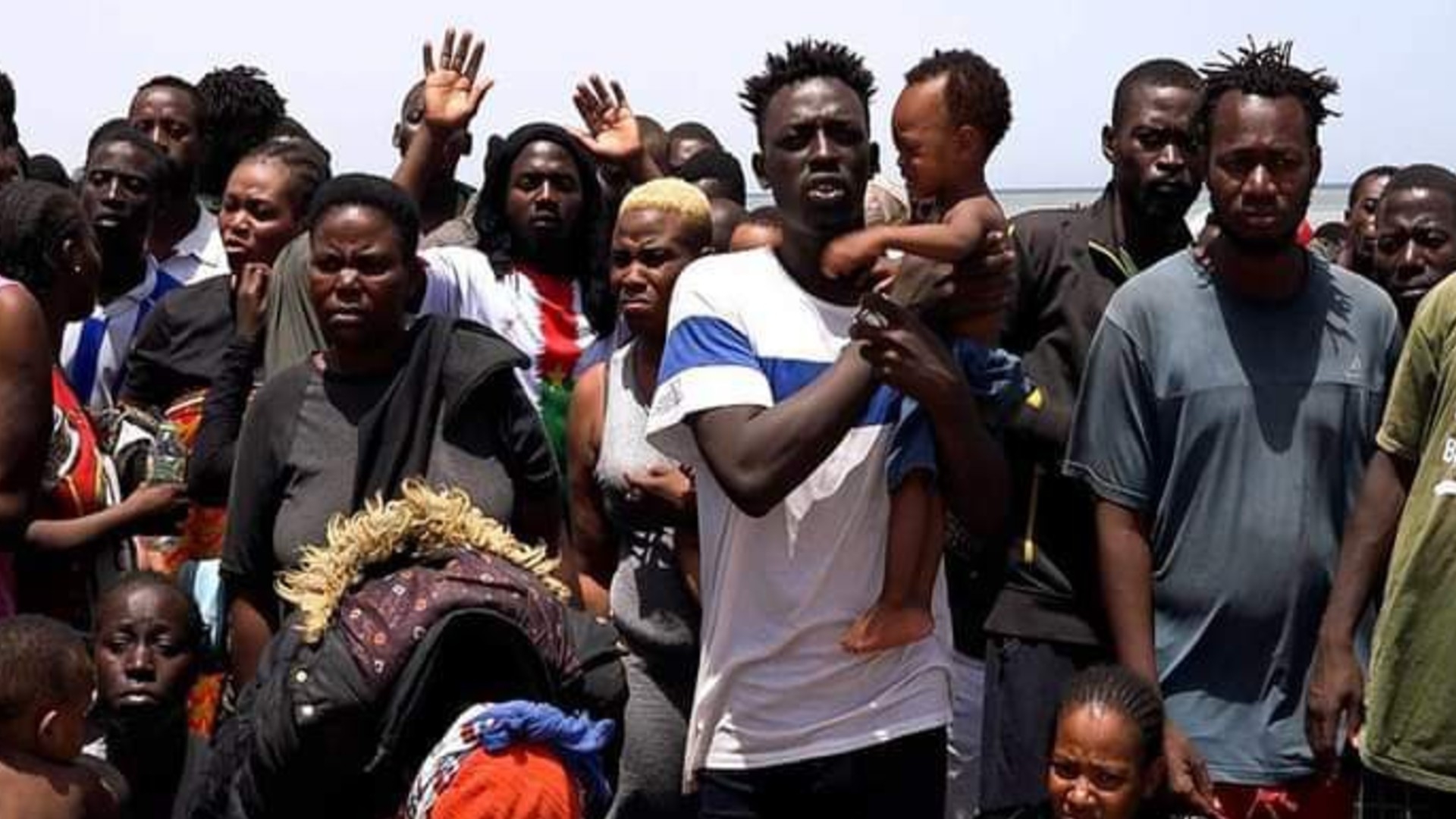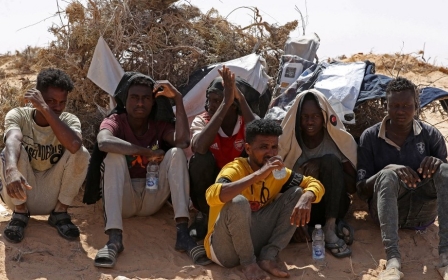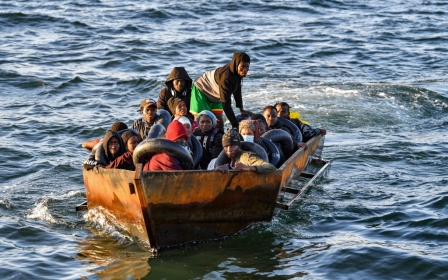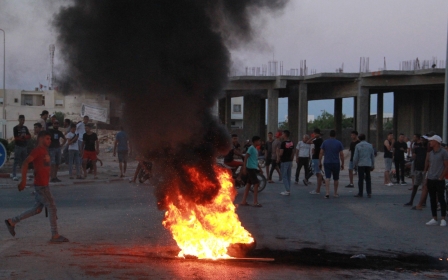Tunisia: Five bodies of sub-Saharan Africans discovered on Libya border

The bodies of five sub-Saharan Africans have been recovered from the militarised buffer zone between Libya and Tunisia, Libya's interior ministry said on Monday.
The discovery was made by Libyan authorities between the towns of Dahra and Tawilat Al-Rutbaat during patrols along the border.
It comes after weeks of collective expulsions by the Tunisian government of sub-Saharan Africans to the desert buffer zone. Hundreds are reportedly stranded near the border without food or water amid soaring temperatures.
According to a Human Rights Watch (HRW) report, between 500 and 700 Black Africans, including women and children, have been expelled to the remote buffer zone since 2 July.
The group includes people with both regular and irregular legal status in Tunisia, the report adds.
Local campaigners put the estimate of people sent to the border at around 1,200.
Eyewitnesses interviewed by HRW reported that among the people expelled were at least 29 children and three pregnant women.
At least six of the group were asylum seekers registered with the UN refugee agency (UNHCR), and at least two had consular cards identifying them as students in Tunisia.
The mass expulsions began after racial tensions flared in Sfax, a main departure point for migrants attempting to cross the Mediterranean to reach Europe. Local rights activists reported that Black Africans in Tunisia's second most populous city faced beatings, evictions and arbitrary detentions.
On 18 July, UN experts urged authorities to “immediately halt” the collective expulsions and discriminatory treatment of sub-Saharan Africans in Tunisia, stating that this “amounts to refoulement prohibited under international human rights law”.
Waves of racist violence erupted after President Kais Saied’s incendiary comments in February about sub-Saharan Africans in Tunisia, stating that their “undeclared goal” was to transform the country into “a purely African country that has no affiliation to the Arab and Islamic nations".
The comments unleashed attacks and evictions of the sub-Saharan population across the country.
The EU’s recent signing of a deal with Tunisia to stem migration has drawn widespread criticism from rights groups, who say that the deal endorses violence against those seeking asylum.
Middle East Eye propose une couverture et une analyse indépendantes et incomparables du Moyen-Orient, de l’Afrique du Nord et d’autres régions du monde. Pour en savoir plus sur la reprise de ce contenu et les frais qui s’appliquent, veuillez remplir ce formulaire [en anglais]. Pour en savoir plus sur MEE, cliquez ici [en anglais].




